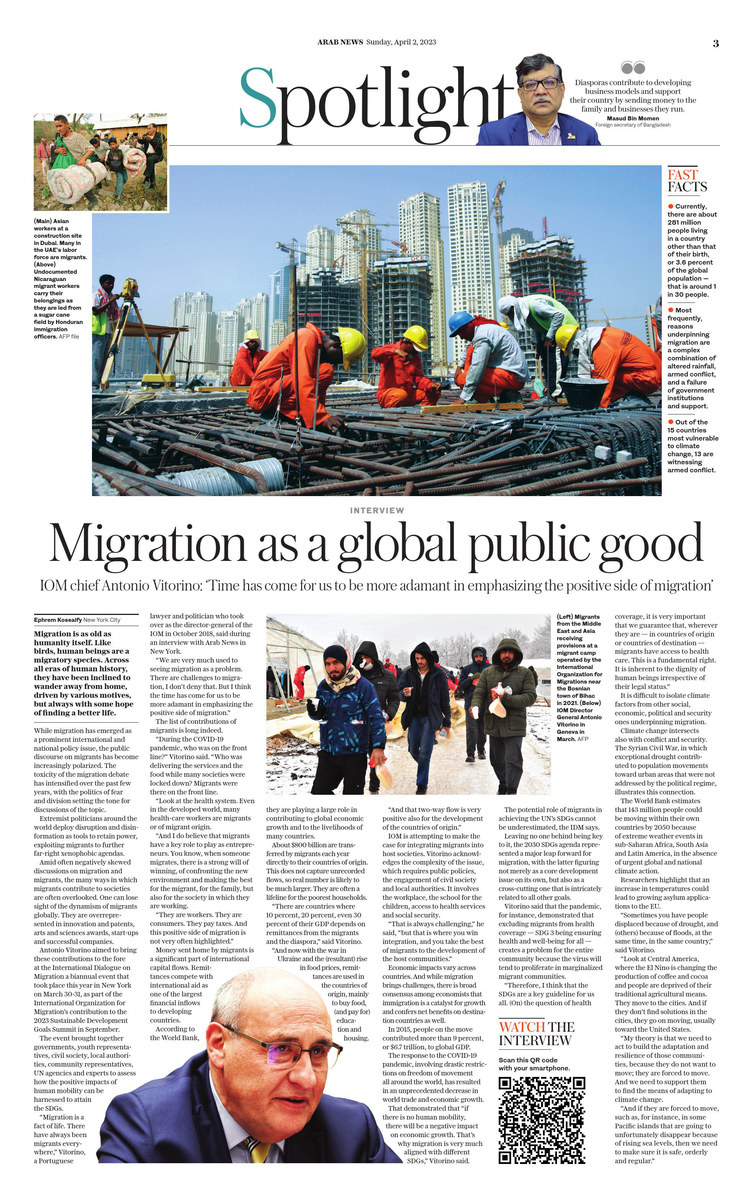NEW YORK CITY: Migration is as old as humanity itself. Like birds, human beings are said to be a migratory species. Across all eras of human history, they have been inclined to wander away from home, driven by various motives, but always with some idea of a better life.
While migration has emerged as a prominent international and national policy issue, the public discourse on migrants has increasingly become polarized. The toxicity of the migration debate has intensified over the past few years, with the politics of fear and division setting the tone for discussions.
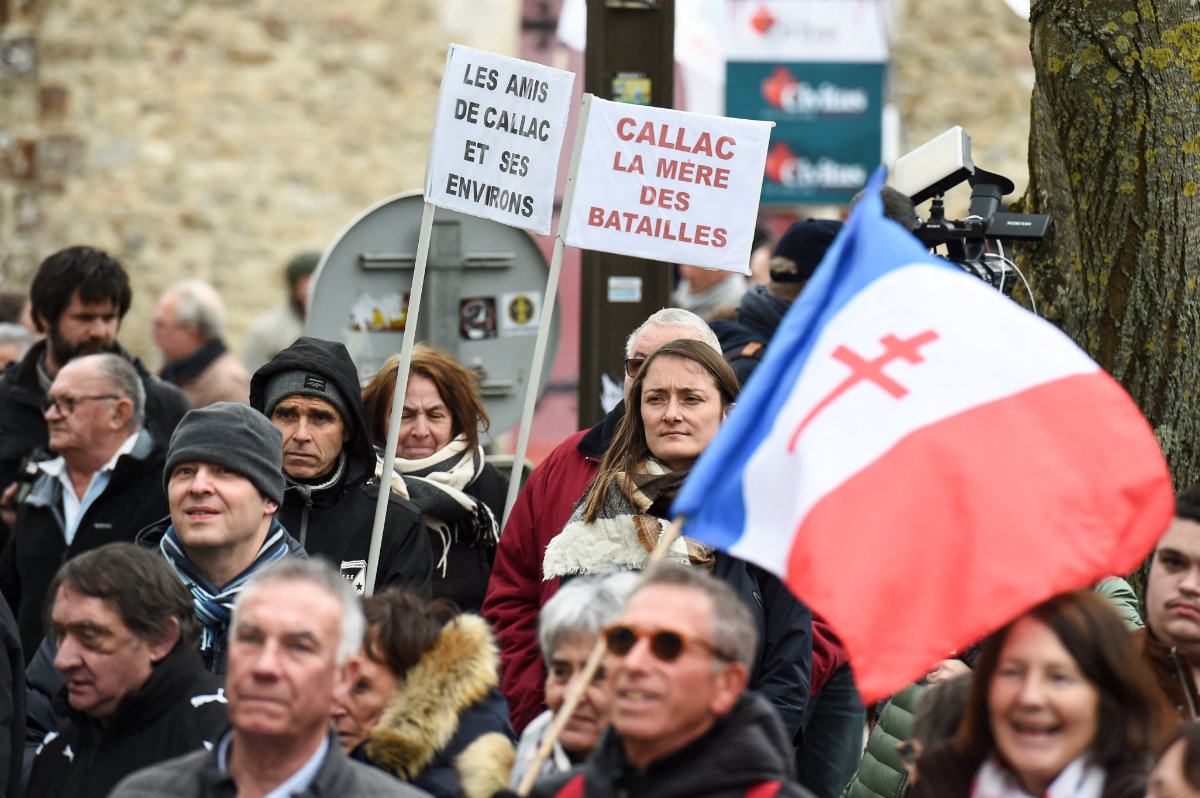
French rightists protest on February 25, 2023 in Saint-Brevin-les Pins, western France, against the establishment of a reception center for migrants. (AFP file)
Extremist politicians around the world deploy disruption and disinformation as tools to retain power, exploiting migrants for far-right xenophobic agendas.
Amid often negatively skewed discussions on migration and migrants, the many ways in which migrants contribute to societies is often overlooked. One can lose sight of the dynamism of migrants globally. They are overrepresented in innovation and patents, arts and sciences awards, start-ups and successful companies.
Antonio Vitorino aimed to bring these contributions to the forefront at the International Dialogue on Migration, or IDM, a biannual event that took place in New York on March 30-31, as part of the International Organization for Migration’s contribution to the 2023 SDG Summit in September.
The event brought together governments, youth representatives, civil society, local authorities and community representatives, UN agencies and experts to assess how the positive impacts of human mobility can be harnessed to attain the SDGs.
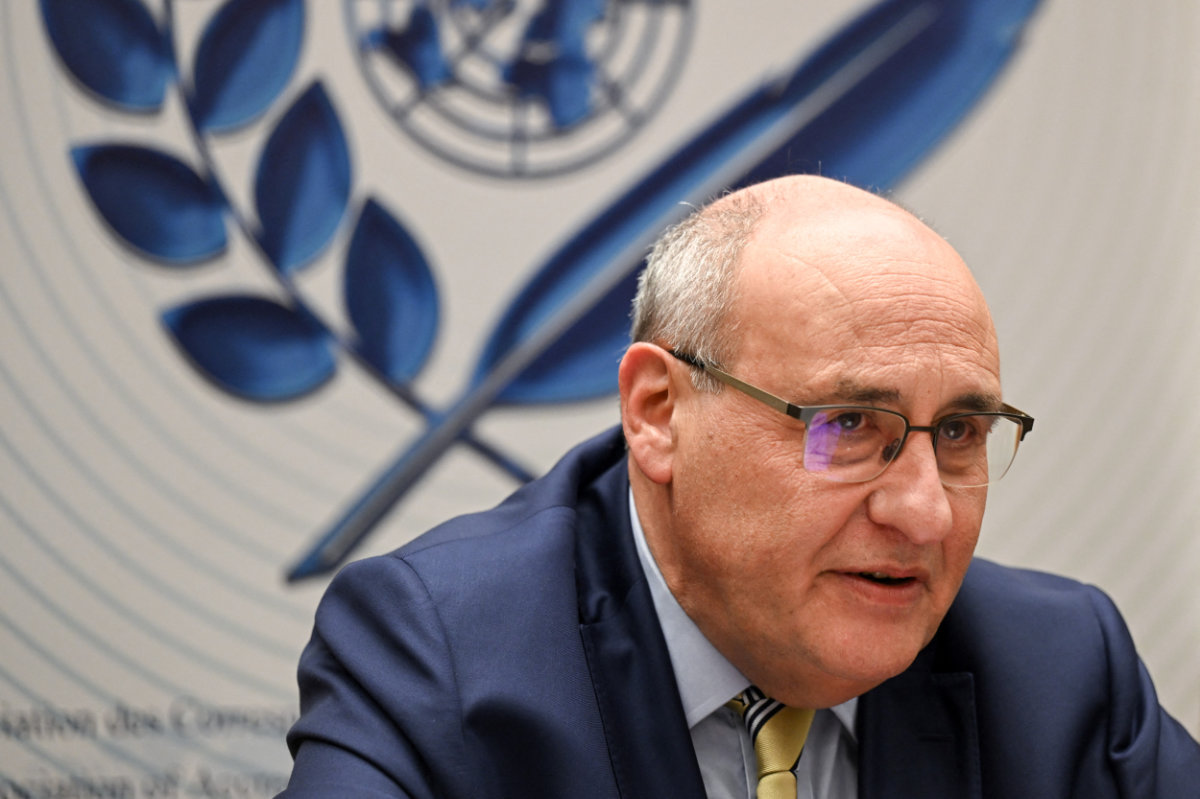
IOM Director General Antonio Vitorino says that while migration brings challenges, it is also a catalyst for economic growth. (AFP file)
“Migration is a fact of life. There have always been migrants everywhere,” Vitorino, a Portuguese lawyer and politician who took over as the director-general of IOM in October 2018, said during an interview with Arab News in New York City.
“We are very much used to seeing migration as a problem. There are challenges to migration, I don’t deny that. But I think the time has come for us to be more adamant in emphasizing the positive side of migration.”
FASTFACTS
Currently, there are about 281 million living in a country other than their countries of birth, or 3.6 percent of the global population — that is, only 1 in 30 people.
More than 100 million of those were forcibly displaced by conflict, persecution, poverty, climate disaster.
Most frequently, reasons underpinning migration are a complex combination of altered rainfall, armed conflict and a failure of government institutions and support.
Out of the 15 most vulnerable countries to climate change, 13 are witnessing an armed conflict.
The list of contributions of migrants is long indeed.
“During the COVID-19 pandemic, who was on the front line?” Vitorino said. “Who was delivering the services and the food while many societies were locked out? Migrants were there on the front line.
“Look to the health system. Even in the developed world, many of the health care workers are migrants or of migrant origin.
“I do believe that migrants have a key role to play as entrepreneurs. When someone migrates, there is a strong will for winning, for confronting the new environment, and for making the best for the migrant (and) their family but also for the society in which they are working.
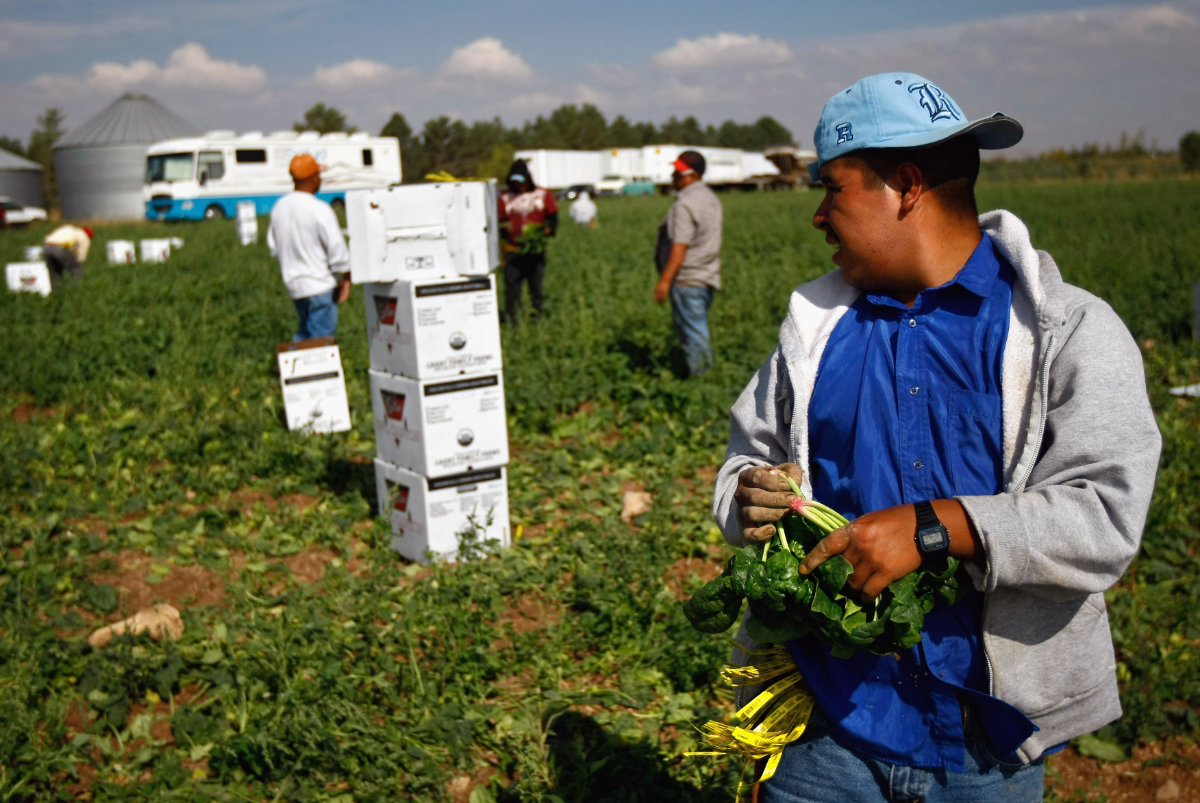
Migrant farm workers from Mexico pick spinach near a mobile clinic van near Wellington, Colorado, US. (AFP file)
“They are workers. They are consumers. They pay taxes. And this positive side of migration is not very often highlighted.”
Money sent home by migrants is a significant part of international capital flows. Remittances compete with international aid as one of the largest financial inflows to developing countries.
According to the World Bank, they are playing a large role in contributing to economic growth and to the livelihoods of many countries.
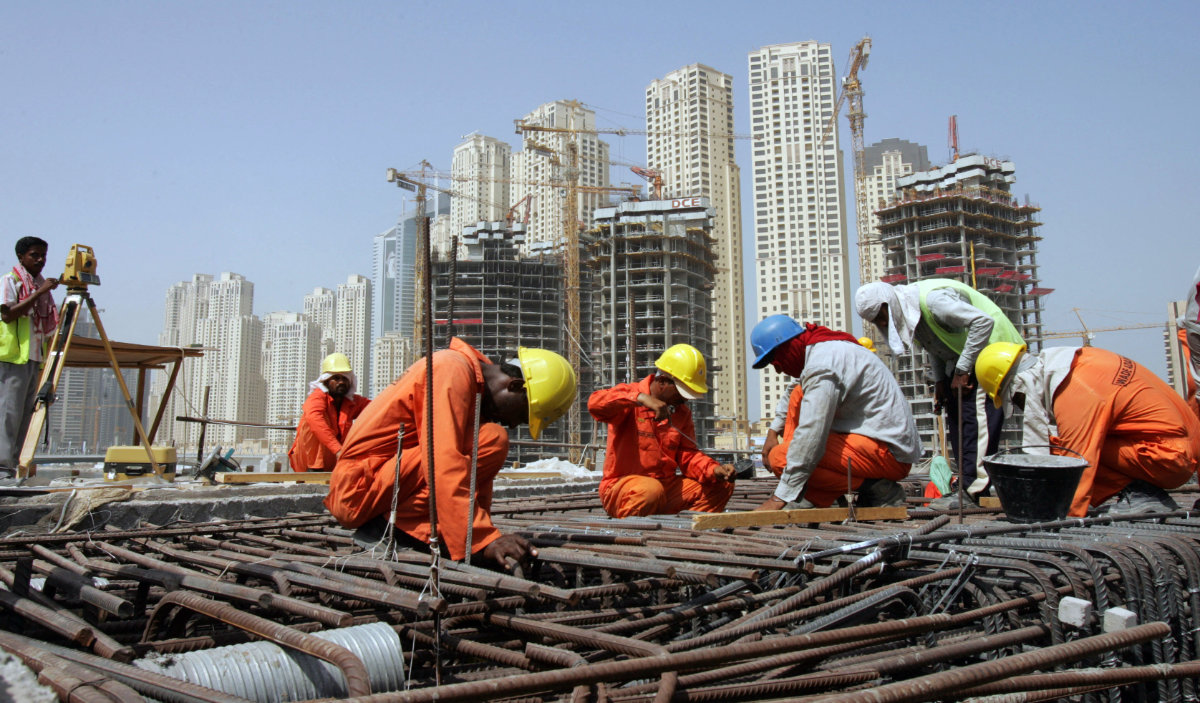
Asian workers at a construction site in Dubai. Many in the UAE’s labor force are migrants. (AFP file)
About $800 billion are transferred by migrants each year directly to families or communities in their countries of origin. This number does not capture unrecorded flows, so the magnitude of global remittances is likely to be much larger. They are often a lifeline for the poorest households, allowing them to meet their basic needs.
“There are countries where 10 percent, 20 percent, even 30 percent of their GDP depend on the remittances from the migrants and the diaspora,” said Vitorino.
“And now with the war in Ukraine and the (resultant) rise in food prices, remittances are used by the families in the countries of origin, mainly to buy food, (and pay for) education and housing.”
“So, it’s a contribution to the social stability and to the development of the countries of origin.
“But we are not just talking about money. We’re talking about something much, much more important, which is the link between the diaspora and the countries of origin: Family relations, friends. Migrants that come back to the country of origin, even for a limited period of a few months, transfer knowledge to their countries, expertise, and sometimes even technology.
“And that two-way flow is very positive also for the development of the countries of origin.”
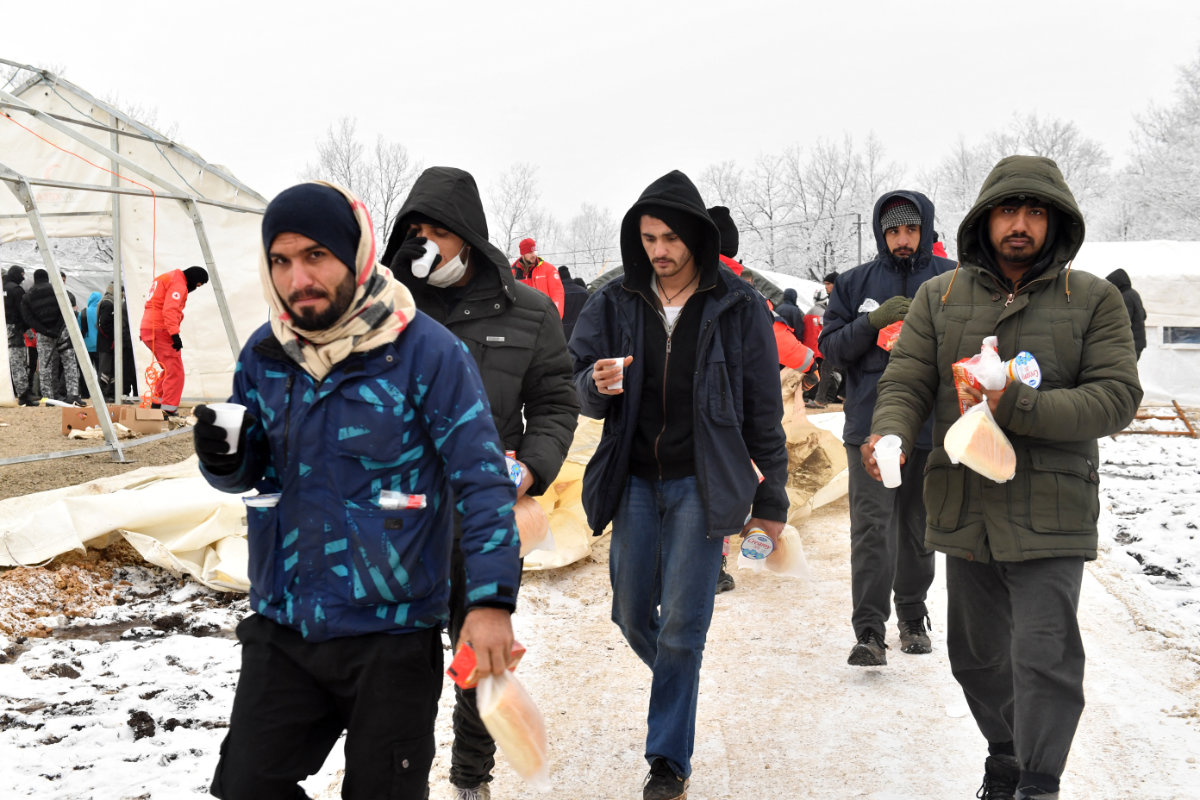
Migrants from the Middle East and Asia receiving provisions at a migrant camp operated by the International Organization for Migrations near the Bosnian town of Bihac
in 2021. (AFP file)
IOM is attempting to make the case for integrating migrants into host societies. Vitorino acknowledges the complexity of the issue, which requires public policies, the engagement of civil society and local authorities. It involves the workplace, the school for the children, access to health and social security services.
“That is always challenging,” he said, “but that is where you win integration, and you take the best of migrants to the development of the host communities.”
Economic impacts vary across countries. And while migration brings challenges, there is broad consensus among economists that immigration is also a catalyst for economic growth and confers net benefits on destination countries as well.
In 2015, people on the move contributed more than 9 percent, or $6.7 trillion, to global GDP.
The response to the COVID-19 pandemic, involving drastic restrictions on freedom of movement all around the world, has resulted in an unprecedented decrease in world trade and economic growth.
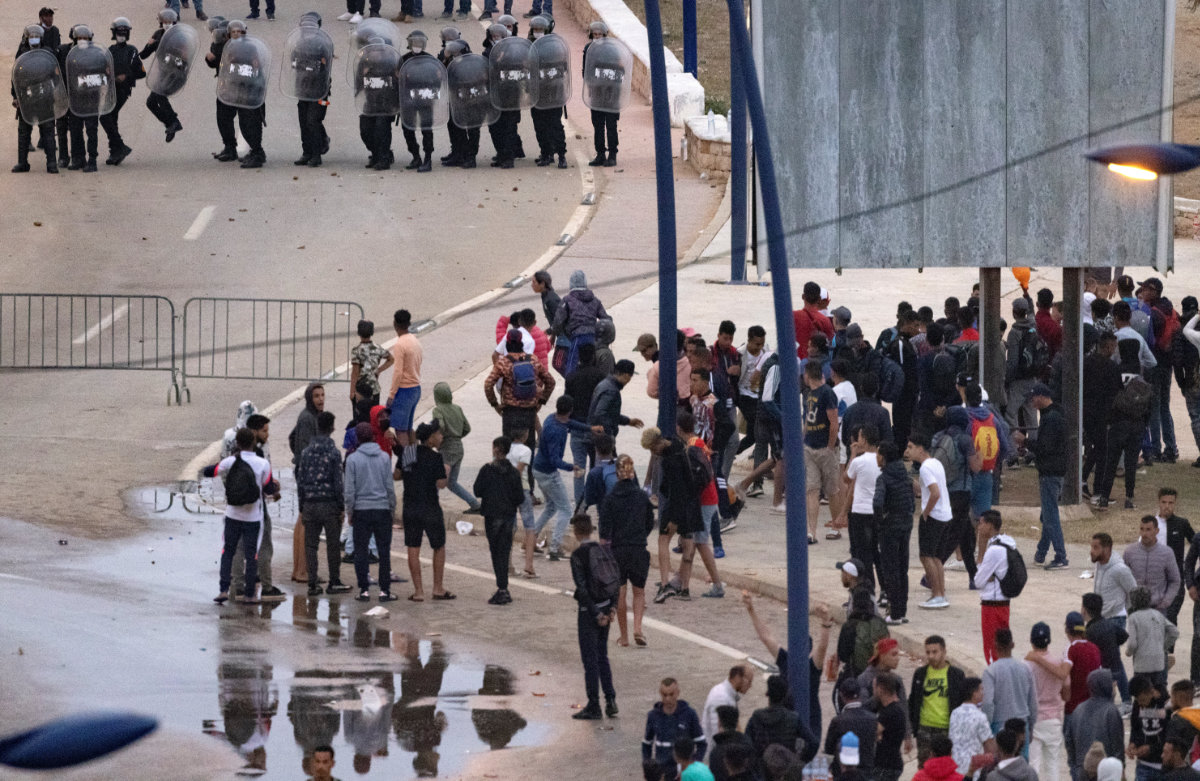
Migrants face-off with Moroccan riot police in the northern town of Fnideq, close to the border between Morocco and Spain's North African enclave of Ceuta on May 19, 2021. (AFP file)
That demonstrated that “if there is no human mobility, there will be a negative impact on economic growth. That’s why migration is very much aligned with different SDGs.”
The potential role of migrants in achieving the UN SDGs cannot be underestimated, IDM says.
Leaving no one behind being key to it, the 2030 SDGs agenda represented a major leap forward for migration where the latter figured not merely as a core development issue on its own, but also as a cross-cutting one that is intricately related to all other goals.
Vitorino said that the pandemic, for instance, demonstrated that excluding migrants from health coverage — SDG 3 being ensuring health and well-being for all — creates a problem for the entire community because the virus will tend to proliferate in those marginalized migrant communities.
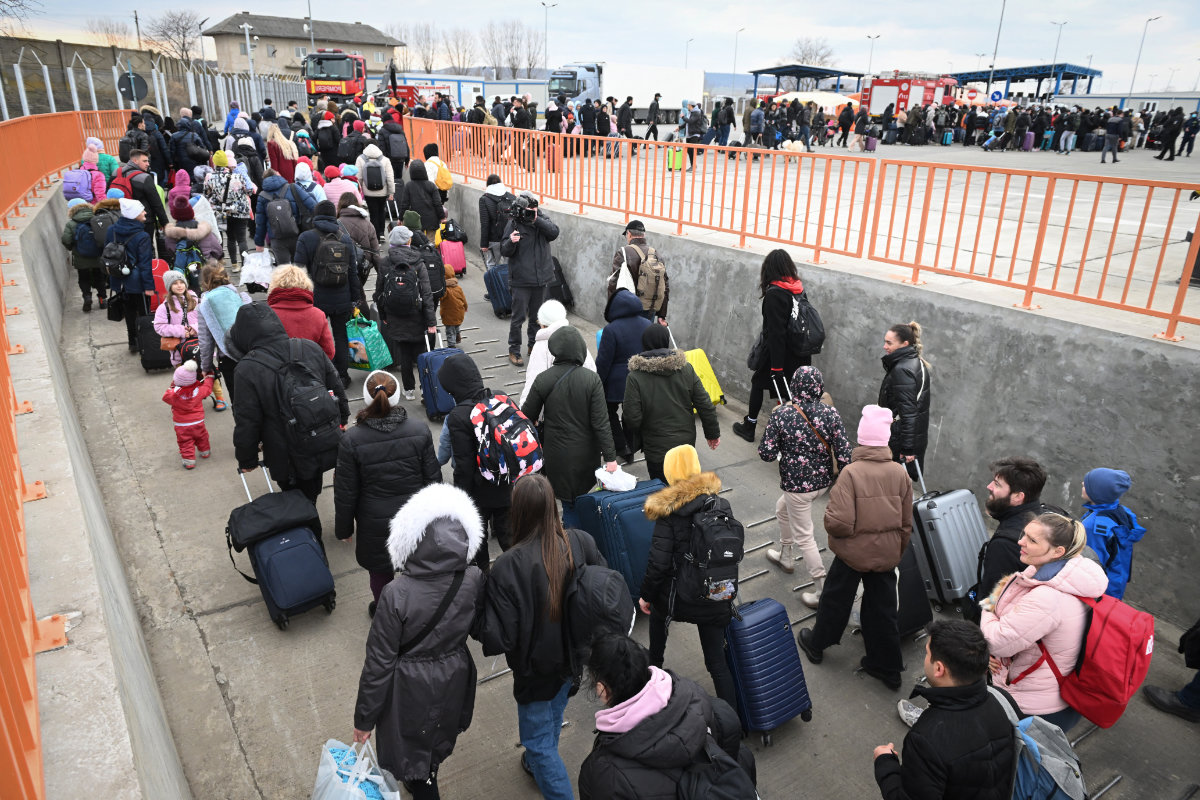
A photo taken on February 26, 2022, shows people fleeing from Russia's invasion of Ukraine descending from a ferry boat to enter Romania. Over 8.1 million refugees fleeing Ukraine have been recorded across Europe, while an estimated 8 million others had been displaced within the country by late May 2022. (AFP file)
“Therefore, I think that the SDGs are a key guideline for us all. (On) the question of health coverage, it is very important that we guarantee that wherever they are, in countries of origin or countries of destination, migrants have access to health care. This is a fundamental right. It is inherent to the dignity of human beings irrespective of their legal status.”
Despite IOM’s efforts, “unfortunately, there is still a very uneven panorama about vaccination. The developed world has rates of vaccination around 70 percent and the low-income countries are still around 20 percent. This is an issue of concern to us. And this definitely something that does not help to fulfill the objectives of the 2030 agenda,” said Vitorino.
He visited Turkiye to oversee the organization’s operations following the Feb. 6 twin earthquakes; he said he had never seen anything like it.
“Nothing I’ve been in, theaters of war, even recently in Ukraine, (compares with) the degree of destruction and devastation that I witnessed in Turkiye.
“I see a city of 200,000 people totally smashed by the fury of the earthquake. The fury of nature should make us think very carefully about the frequency and the intensity of these natural hazards that are also related to climate change.”
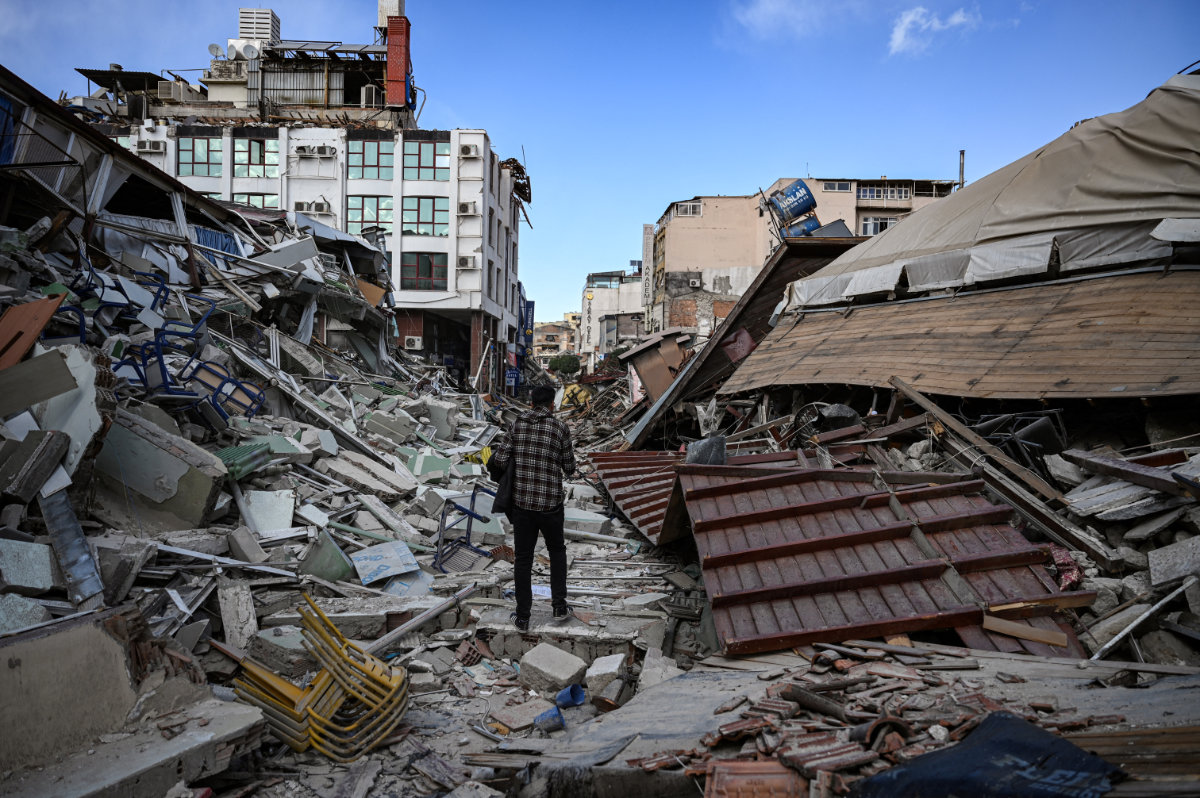
Hundreds of thousands of people in Turkiye and Syria had been rendered homeless and without livelihood by the massive earthquakes that hit southern Turkiye on February 6, 2023. (AFP file)
It is difficult to isolate climate factors from other social, economic, political and security ones underpinning migration.
Climate change intersects also with conflict and security. The Syrian civil war, where exceptional drought contributed to population movements toward urban areas that were not addressed by the political regime, illustrates this connection.
The World Bank estimates that 143 million people could be moving within their own countries by 2050 because of extreme weather events in sub-Saharan Africa, South Asia and Latin America, in the absence of urgent global and national climate action.
Researchers highlight that an increase in temperatures could lead to growing asylum applications to the EU.
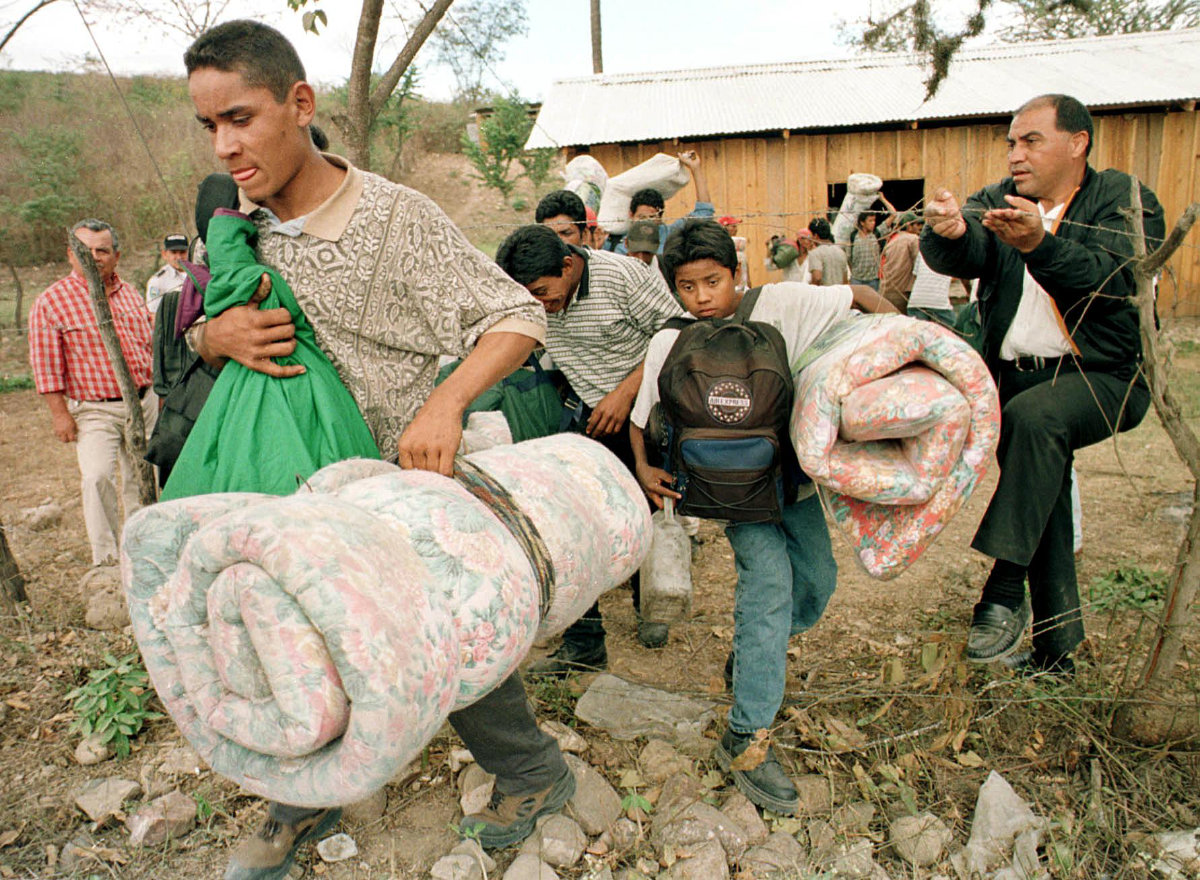
Undocumented Nicaraguan migrant workers carry their belongings as they are led from a sugar cane field by Honduran immigration officers. (AFP file)
Drought and desertification, heat waves and sea-level rise will cause depletion of ecosystems ranging from water shortages to loss of arable land, leading to conflicts over scare natural resources. The threats to human security might in turn drive people to migrate in search of alternative income and ways to meet their basic needs.
“Sometimes you have people displaced because of drought, and (others) because of floods, at the same time, in the same country,” said Vitorino.
“Look to Central America where the El Nino is changing the production of coffee and cocoa and people are deprived of their traditional agricultural means. They move to the cities. And if they don’t find solutions in the cities, they go on moving, usually toward the United States.
“My theory is to say we need to act to build the adaptation and resilience of those communities because they do not want to move. They are forced to move. And we need to support them to find the means of adapting to climate change.
“And also if they are forced to move, such as, for instance, in some Pacific islands that are going to unfortunately disappear because of sea-level rise, we need to make it safe, orderly and regular.”
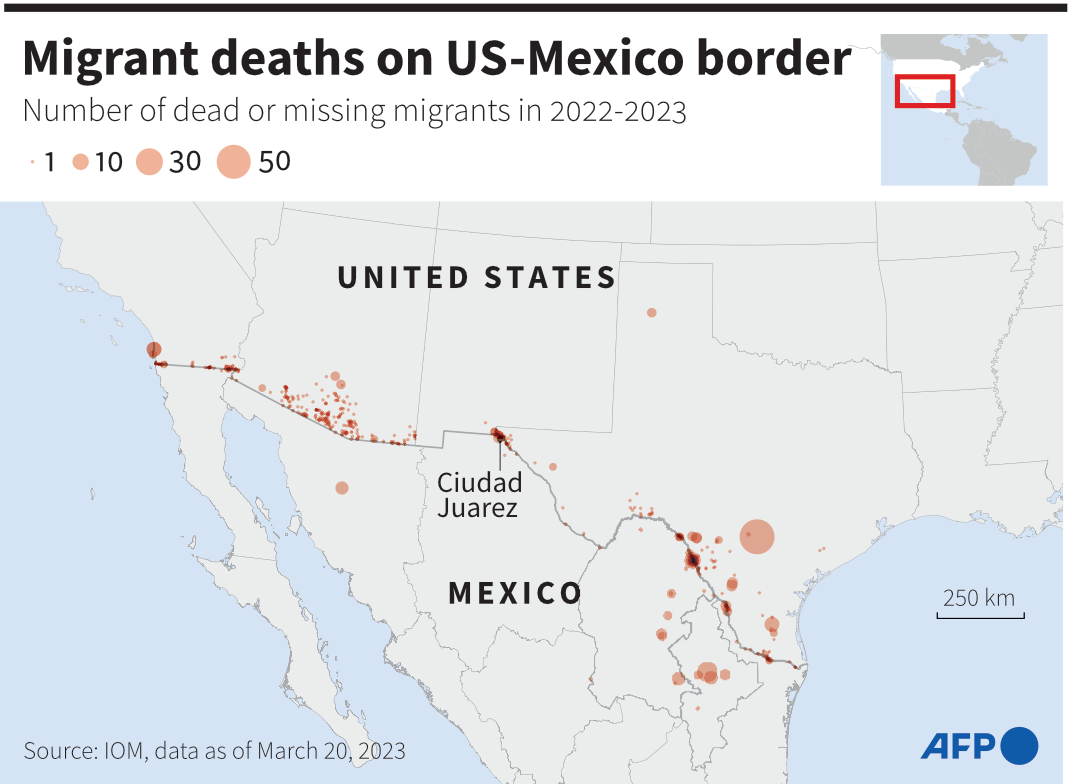
IOM estimates that since 2014, about 55,000 migrants have died or disappeared. Of those, about 8,000 were en route to the US. They perished in accidents or while traveling in subhuman conditions.
The fire that killed dozens of people at an immigration processing center in Ciudad Juarez on the border with Texas on the night of March 27 was only the latest chapter in a continuing tragedy. A surveillance video has shown immigration agents walking away from the trapped detainees as the flames were engulfing them.
In 2022, 2,062 migrants died while crossing the Mediterranean Sea. Between 2014 and 2018, for instance, the bodies of about 12,000 people who drowned were never found.
Vitorino laments the recent increase seen in the number of irregular migrants moving around the world.
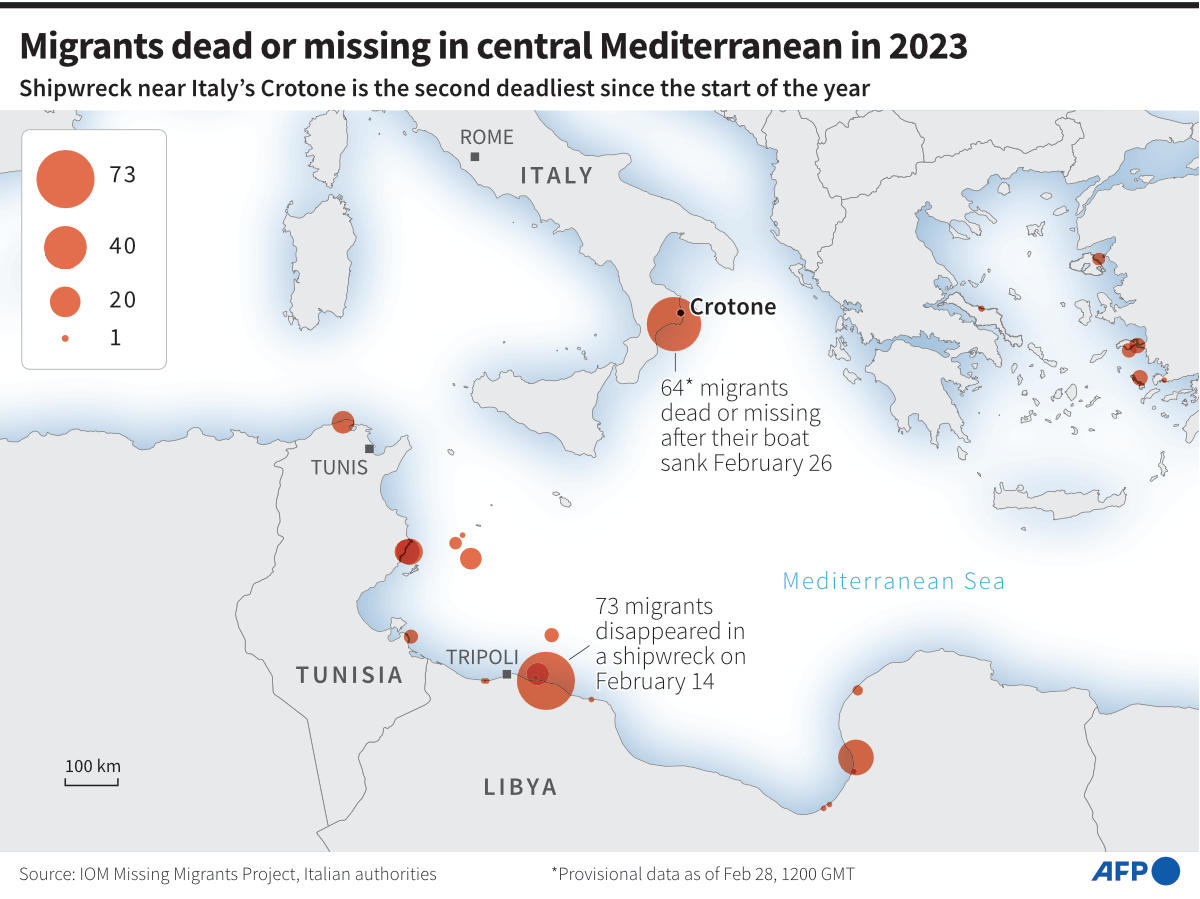
“We need to have a holistic approach to these movements and understand that you cannot just deal with one of the reasons without taking into consideration the other reasons,” he said, adding that “the need to preserve human lives and prevent deaths is a priority.”
IDM, he said, will provide conclusions that will feed into the report of the secretary general next year about the implementation of the Global Compact on Migration.
“We need evidence-based policies based on reliable and effective data. We need to guarantee the role of youth, particularly in the fight against climate change. We need to make sure that migrants are fully included in the health coverage, a critical issue to succeed in the SDGs.
“And we need to mobilize the diaspora to the development of the countries of origin.
“Those are the key messages that I hope from the IDM.”
